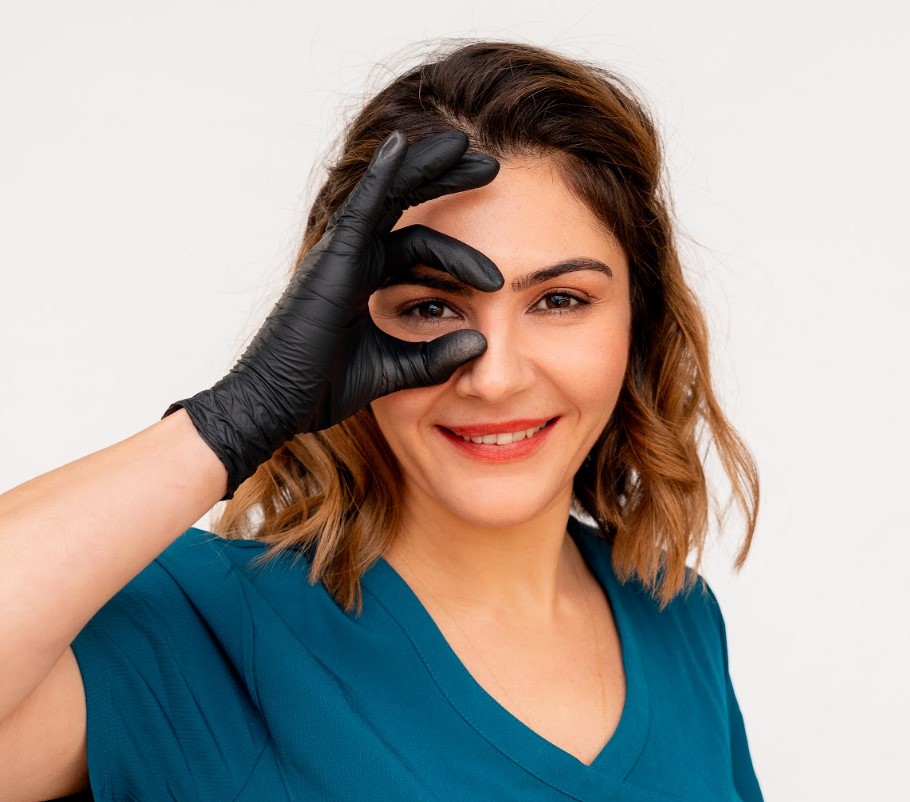Polynucleotides in London
Polynucleotide injections offer a revolutionary method in aesthetic medicine, relying on purified polymerised polynucleotides. At our Wimbledon clinic, we are experienced in safe and effective treatments. Distinct from traditional methods, they rejuvenate skin, restoring its firmness and radiance.

The science behind Polynucleotides revolves around transforming fibroblasts and other cells into myofibroblasts, creating immediate, visible skin enhancements.
Plinest® and Newest®
In line with the clinic’s ethos of seeking out the safest and most effective treatments, Damalis Skin Clinic proudly offers two brands of Polynucleotides, – Plinest® and Newest®.
We feel these are among the best polynucleotide solutions on the market today. From Plinest®, we provide three targeted treatments, Plinest®, Plinest Hair®, and Plinest Eyes®, based on the magic of polymerised polynucleotides. Newest®, additionally contains hyaluronic acid and is designed for more mature skin.
Eyes and Face Rejuvenation
Plinest Eyes® is a moisturising gel combatting eye bags, dark circles, and wrinkles around the eyes. It works to reduce tissue loss/thinning around this delicate area.
Plinest® revitalises the face, neck and hands, addressing ageing signs and reducing dehydration. It aims to give improvements across the treated area.
PLINEST® Hair works to improve the patient’s scalp and hair condition. Both Plinest® and Newest® treatments are meticulously formulated with purified polymerised polynucleotides, free from allergenic components like proteins. The treatments boast multiple benefits, from combating free radicals, boosting tissue regeneration, enhancing skin tone and elasticity, and promoting local vascularisation.
Treatment Overview

PROCEDURE TIME
45 minutes

PRICE
Course of 3 treatments £900

Anaesthesia needed
Yes

Discomfort level
Minimal to moderate

BACK TO WORK
Immediately

Duration of results
3 months

Finals results seen
3 months after initial treatment
Number of treatments
Course of 3
Disclaimer: Please note that the duration of treatments, level of pain experienced during the procedure, and recovery time can vary significantly among individuals. While we aim to provide an estimation based on our clinical experience, factors such as individual pain tolerance, skin sensitivity, and treatment specifics may influence the actual experience. We recommend discussing any concerns or questions regarding these aspects with your healthcare provider prior to undergoing the procedure
Polynucleotide TREATMENT IN LONDON
Benefits of Polynucleotides Treatment:
- Stimulates tissue repair by enhancing stem cells.
- Revives skin elasticity and tone.
- Neutralises free radicals, shielding skin from oxidative harm.
- Boosts formation of new capillaries, enhancing skin health.

Polynucleotides FAQs
Check out some frequently asked questions that our patients regularly ask us about polynucleotides.
What can you expect from polynucleotides?
The treatment promises enhanced skin firmness, elasticity, and overall skin quality improvement, with results lasting for months.
Are polynucleotide treatments suitable for all skin types?
Generally, polynucleotide treatments are formulated to be compatible with various skin types. That being said, it’s important to have an in-depth consultation prior to undergoing the procedure. This ensures the treatment suits your specific skin type and condition.
How is polynucleotide treatment different from other dermal fillers or treatments?
While traditional dermal fillers often use substances like hyaluronic acid to fill and smoothen skin, polynucleotide treatments focus on rejuvenating and repairing skin from within. The treatment uses polymerised polynucleotides that promote skin elasticity and aid in tissue regeneration and repair.
Are there any specific aftercare steps to follow post-polynucleotide treatment?
After undergoing a polynucleotide treatment, it’s recommended to avoid direct sun exposure and refrain from strenuous activities that can cause excessive sweating for at least 24 hours. Keeping the skin moisturised and avoiding harsh skincare products for a few days is also beneficial.
How frequently should I undergo polynucleotide treatments to maintain results?
The longevity of the treatment results can vary among individuals, but typically, the effects last several months. Some specialists recommend undergoing the treatment 2-3 times a year to maintain optimal results, but it’s best to consult your dermatologist for personalised advice.
Is the polynucleotide procedure painful?
Most patients report minimal discomfort during the procedure. The treatment involves using fine needles, and while this can cause slight discomfort, it’s usually bearable. We offer numbing creams or local anaesthesia to enhance the comfort level during the treatment.
What Our Patients Say
Procedure and Side Effects
Procedure:
Polynucleotides are administered via precise under-skin injections, the treatment can pair with hyaluronic acid fillers, amplifying its duration and results.
Potential Side Effects:
Ameela polynucleotides are purified to be free from other potentially immune response-inducing components.
Possible minor side effects include swelling, bleeding, or, rarely, infections, which tend to be temporary. Any initial bumpiness post-injection usually subsides within hours.
Get in Touch
Ready to Book?
To book a polynucleotides treatment with Dr Stephanie, please get in touch on the details below or book online.


